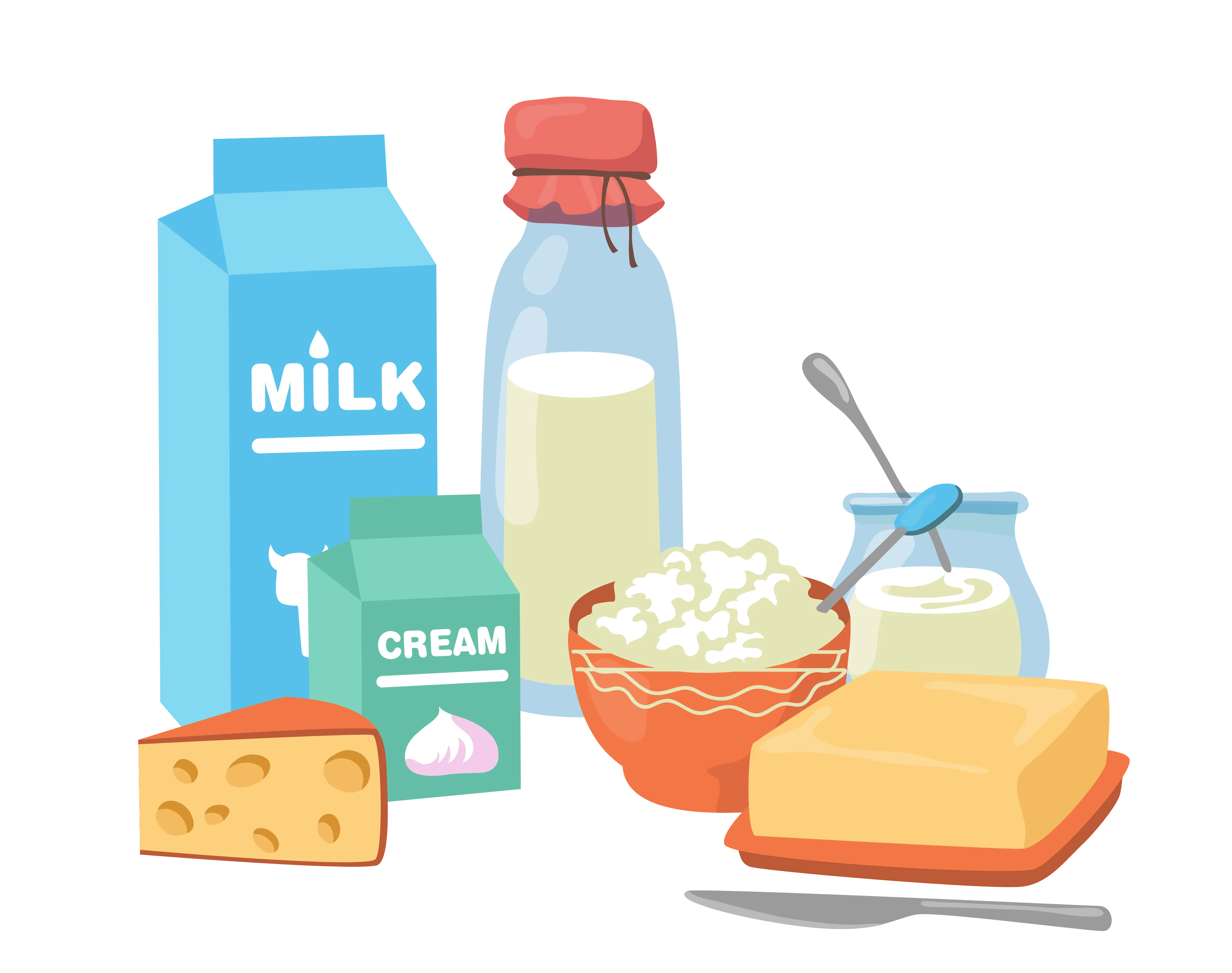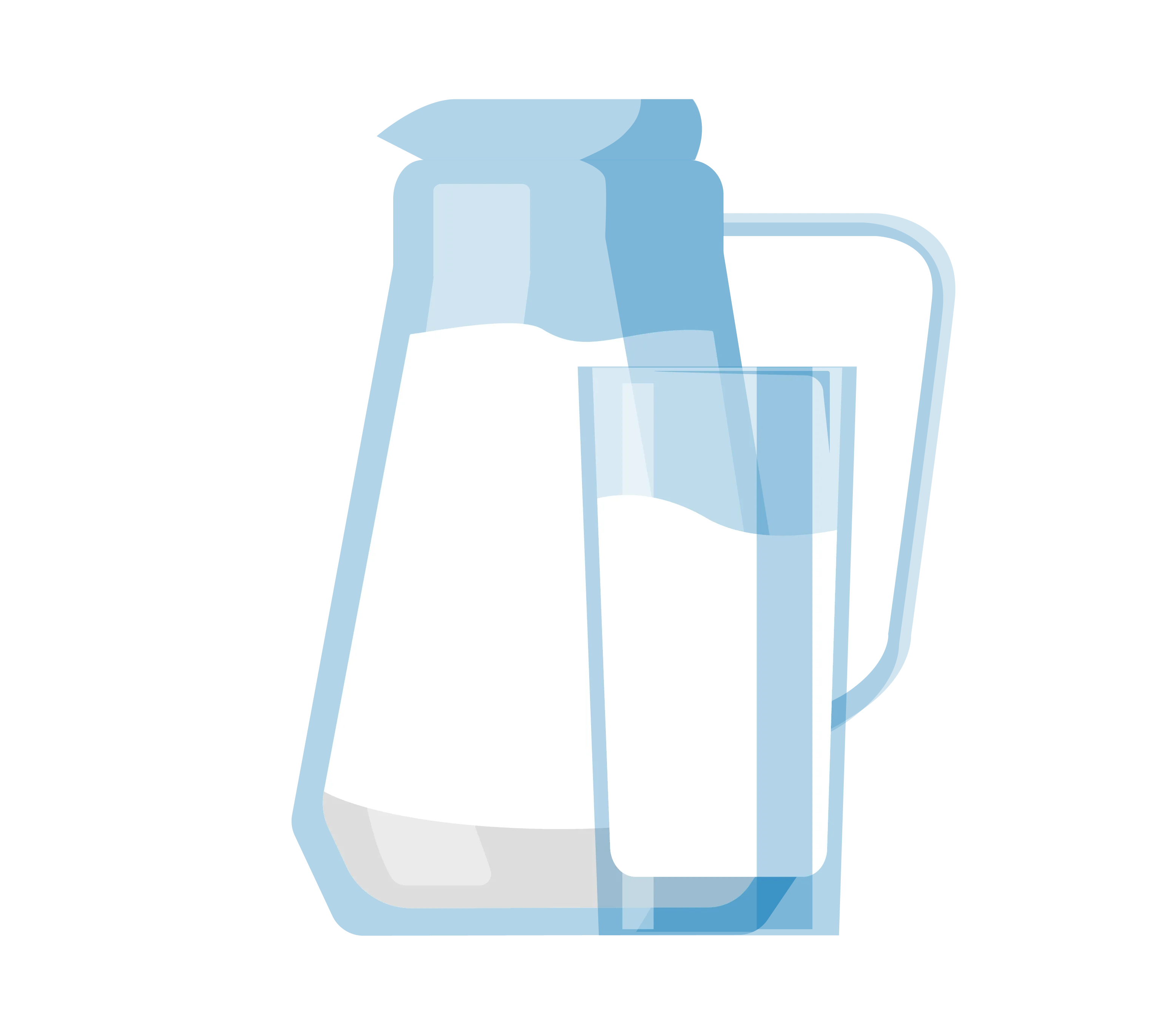Nutrition | 4 min read
Top Dairy Foods that Dieticians Recommend and Health Benefits of Dairy
Medically reviewed by
Table of Content
Key Takeaways
- Dairy foods nutrition value is high as it boosts digestive & bone health
- Dairy foods are rich in calcium, protein, vitamin D, and vitamin B2
- Milk nutrition value differs based on how the dairy is processed
When it comes to dairy foods and beverages there’s a lot of controversy about their impact on our health. A conventional view suggests that consuming dairy foods affects your cardiovascular health. However, modern studies claim that the right kind of dairy reduces the risk of coronary artery diseases.
Keeping speculations aside, it is a fact that the more dairy foods you consume, the more calories you get from saturated fats, which is definitely not good for health. However, dairy products are a rich source of calcium and protein, necessary for your bones and overall health. You get other vital vitamins and nutrients including vitamin D, potassium, magnesium, Vitamin B6, B12, folate, and more when you consume dairy too. When it comes to immunity booster foods, milk nutrition contents help it get on the list of things to consume to boost the immune system.
Dieticians and nutritionists thus recommend low-fat dairy foods for your diet given both the pros and cons. Read on to know important dairy foods nutrition facts and the health benefits of dairy.

Dairy foods to include in your diet
The most common dairy foods to include in your diet are milk, cheese, and yogurt. However, you should eat dairy products in controlled quantities to cater to your calorie needs. Follow a balanced diet of vegetables, fruits, and dairy. Dieticians, nutritionists, and health associations normally recommend that you have fat-free or low-fat dairy foods such as slim milk or low-fat yogurt. It is best to consult with a dietician on how much you should actually consume based on your health, age, and nutritional needs.
Additional Read: Indian Meal Plan to Boost Your Immunity

Health benefits of dairy foods
1. Improves bone health
Dairy is the best source of calcium, which is vital for bone health. The high content of protein, vitamin D, and calcium in dairy products helps strengthen your bones. Besides, calcium found in milk is easily absorbed in your body when compared to calcium from other food sources. Studies report that dairy products lower the risk of fractures in adults and improve bone density too.
2. Reduces blood pressure
Eating dairy foods that have low saturated fat along with vegetables and fruits is effective against high blood pressure. It is as effective as medications for people with elevated BP. Studies have found that a healthy lifestyle and diet including low-fat dairy helps prevent hypertension in the long run.
3. Improves digestive health
Dairy products like yogurt contain probiotics, which help your health in many ways. They boost the number of good bacteria in your intestinal tract thereby improving overall health and avoiding certain diseases.
4. Lowers risk of type 2 diabetes and obesity
In one study on humans, it was found that those who consume dairy fats had less belly fat and were at a reduced risk of type 2 diabetes. Although dairy foods are high in calories, evidence shows that full-fat dairy helps in reducing obesity [5].

Dairy foods nutritional contribution
Milk, cheese, and yogurt offer different calories and nutritional value. However, all of them are high sources of protein and calcium. The value of dairy foods nutrition also depends on how the milk-giving animal was raised or how the dairy was processed. For example, low-fat milk with reduced cholesterol will have lower calories. As for milk nutrition facts, a glass of whole milk (250ml) will give you a calorie intake of 100 with 6.8 grams of protein, 5 grams of fat and 7.8 grams of carbohydrates. Skim milk of the same quantity will offer you 66 calories with 6.6 gram of proteins, 0.4 grams of fat, and 9 grams of carbohydrates.
Tips to include dairy foods nutrition in your diet
There are many ways of incorporating milk and other dairy foods in your diet to gain the health benefits of dairy.
- Drink a glass of milk at the time of breakfast
- Add low-fat cheese like feta or paneer in your sandwich, salads, or pastas
- Make delicious fruit smoothies with milk or yogurt
- Have unflavoured yogurt as a snack with dried fruit and nuts
Although you get a lot of nutrients and vitamins from dairy foods, ensure that they don’t form a large part of your daily diet. The mineral and vitamin intake for every person differs based on their health conditions. This is why it may be useful to consult a dietician or a nutritionist about your dairy needs. Simply book an online doctor consultation on Bajaj Finserv Health to get a customized plan and stay healthy!
References
- https://www.cambridge.org/core/journals/british-journal-of-nutrition/article/intake-of-fermented-and-nonfermented-dairy-products-and-risk-of-incident-chd-the-kuopio-ischaemic-heart-disease-risk-factor-study/C074295265BE9A67E609E22F0820CA4C
- https://www.downtoearth.org.in/news/food/benefits-of-milk-what-can-it-do-to-your-body--61627
- https://www.ncbi.nlm.nih.gov/pmc/articles/PMC3289141/
- https://pubmed.ncbi.nlm.nih.gov/21173413/
- https://link.springer.com/article/10.1007/s00394-012-0418-1
Disclaimer
Please note that this article is solely meant for informational purposes and Bajaj Finserv Health Limited (“BFHL”) does not shoulder any responsibility of the views/advice/information expressed/given by the writer/reviewer/originator. This article should not be considered as a substitute for any medical advice, diagnosis or treatment. Always consult with your trusted physician/qualified healthcare professional to evaluate your medical condition. The above article has been reviewed by a qualified doctor and BFHL is not responsible for any damages for any information or services provided by any third party.




